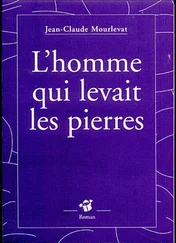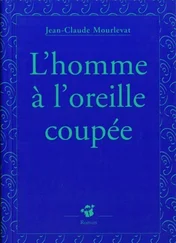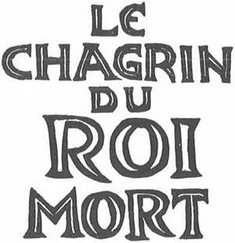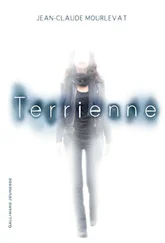Jean-Claude Mourlevat - Winter's End
Здесь есть возможность читать онлайн «Jean-Claude Mourlevat - Winter's End» весь текст электронной книги совершенно бесплатно (целиком полную версию без сокращений). В некоторых случаях можно слушать аудио, скачать через торрент в формате fb2 и присутствует краткое содержание. Год выпуска: 2010, ISBN: 2010, Издательство: Candlewick, Жанр: Старинная литература, на английском языке. Описание произведения, (предисловие) а так же отзывы посетителей доступны на портале библиотеки ЛибКат.
- Название:Winter's End
- Автор:
- Издательство:Candlewick
- Жанр:
- Год:2010
- ISBN:9780763651749
- Рейтинг книги:5 / 5. Голосов: 1
-
Избранное:Добавить в избранное
- Отзывы:
-
Ваша оценка:
- 100
- 1
- 2
- 3
- 4
- 5
Winter's End: краткое содержание, описание и аннотация
Предлагаем к чтению аннотацию, описание, краткое содержание или предисловие (зависит от того, что написал сам автор книги «Winter's End»). Если вы не нашли необходимую информацию о книге — напишите в комментариях, мы постараемся отыскать её.
Winter's End — читать онлайн бесплатно полную книгу (весь текст) целиком
Ниже представлен текст книги, разбитый по страницам. Система сохранения места последней прочитанной страницы, позволяет с удобством читать онлайн бесплатно книгу «Winter's End», без необходимости каждый раз заново искать на чём Вы остановились. Поставьте закладку, и сможете в любой момент перейти на страницу, на которой закончили чтение.
Интервал:
Закладка:
“The pigs! Look at that: pies, ham, pâté, apple tart!”
“Chocolates!” moaned Helen.
They fell on the food and ate everything that came to hand. Then they helped themselves, not feeling at all guilty, to anything they could carry easily, stuffing their pockets with bread, cheese, and crackers. The doors had all been left unlocked after the guests fled in disorder. They opened them one by one and reached the ground floor unimpeded. In the dark they made their way along the corridor that ran the full length of the building. Milos didn’t switch on his flashlight until they reached the refectory, where he felt sure no one would find them at this time of night. The little door at the back of the room was open too. Milos started down the stairs first.
“Careful, the steps are slippery!” whispered Helen.
“Put your hands on my shoulders,” Milos replied. “You said the cell’s underneath the cellar?”
“Yes. Keep going! We’ll have to go right to the bottom.”
After about ten feet, a space opened out on their right. Milos ran the beam of his flashlight over it, saw nothing, and went on down. Following him along the mud-brick tunnel, Helen felt her heart thudding violently. What state would little Catharina be in? How would she have survived when Basil, who must be much tougher, had lost his head? How could they have left her alone for a whole week in that nightmarish cell? Shame and fear overwhelmed her.
“It’s not locked!” exclaimed Milos, incredulous. “Look, Helen, the door’s wide open!”
She joined him, snatching the flashlight from his hands. If the door had been left open, it could mean that Catharina wasn’t in any shape to escape. Perhaps she too . . . Helen swept the beam of the flashlight around the cell. It was empty.
“She isn’t here! I don’t understand. What have they done with her?”
“Come on!” Milos interrupted. “We can’t hang around here!”
They turned back, baffled, not knowing whether to be glad or anxious to find Catharina gone. They were about to start climbing the stairs again when Milos stopped so suddenly that Helen bumped into him. Little Catharina Pancek was sitting on a step farther up the staircase, huddled in her coat. She smiled at them.
“Helen — oh, Helen, I’m so glad to see you.”
Helen rushed forward to take Catharina’s hands. They were burning hot, and the girl’s hair was sticking to her forehead. She smelled of earth.
“Catharina, what are you doing here? You’re shivering! Who let you out?”
“Theresa,” Catharina replied. “It was Theresa. . . . Would you . . . would you like to see the Sky?”
Helen realized that in her amazement at finding the cell empty she had completely forgotten to look up at the legendary picture on the beam. The girls at the school both feared to see it and dreamed of the sight.
“Yes . . . yes, I would. You mean the Sky really exists?”
“Oh yes, and it’s beautiful. I’ll show you, but . . . but help me. My . . . my legs won’t carry me.”
They took her under the arms, and all three went slowly back to the cell. Milos turned the flashlight on the beam, and they looked at it in silence. The sky was deep blue; the white clouds were crowding each other close as the wind chased them. A large gray bird soared through the air, wings spread wide. They could almost hear its cry.
“I never knew there was a bird,” whispered Helen, impressed.
“It wasn’t there just now,” said Catharina faintly. “It wasn’t there at all while I was in the cell. . . . It’s just appeared. . . . That means I’m the bird, and the bird has flown away. . . .”
“Are you sure it wasn’t there?” asked Helen.
“My father was a mathematician,” Catharina replied.
“What? What are you talking about?”
“My father was a mathematician. . . . Theresa told me so.”
“Let’s get out of here,” Milos breathed into Helen’s ear. “She’s feverish; her teeth are chattering.”
“Right, but where do we take her?”
“I want to go to my consoler,” Catharina declared.
The other two exchanged a swift glance and agreed. They helped Catharina up the stairs as best they could and left the refectory. They had expected the fresh night air to revive the sick girl, but the opposite happened: she almost fainted, and they had to support her to keep her from collapsing in the yard. They skirted the perimeter wall as far as the Skeleton’s lodge. There was no light on in there. Was the old battle-ax watching in silence from behind her venetian blinds? They bent double, keeping below the windows as they made their way silently on until they reached the gate. Milos tried the handle. No luck. It was locked.
He was turning back to tell Helen, who was still supporting Catharina, when an acid voice froze them where they stood. “Going for a little walk, were we?”
The Skeleton was standing ten feet away. Her skin looked yellow in the moonlight. She hadn’t taken off her evening dress or her makeup, and the ash of her cigarette glowed in her hand.
“And what are you doing here, young man?”
Helen opened her mouth to invent some story, but she closed it again at once. There was nothing to explain — or rather, there was too much to explain, and Milos was slowly moving toward the Skeleton.
“Don’t you come any closer, young man! One more step and I shall scream!”
“In that case, ma’am, I’m very sorry,” said Milos, “but —”
And he did something very simple and decidedly primitive: he knocked her out with a single uppercut to her chin. She uttered a strange, mouselike squeal, staggered a little way back, and collapsed like the bag of bones she was.
“Oops!” said Catharina, laughing.
Milos made for the Skeleton, lifted her with one hand, and carried her into the lodge. The next moment, he came out, locked the lodge door, and unlocked the gate.
“I’ve shut her in there and unplugged the phone, but we’ll have to hurry.”
Even with the two of them supporting her, one on each side, Catharina was terribly slow. After they had gone a little way, Milos stopped, took her glasses off her, draped her around his shoulders like a scarf, and set off again, striding vigorously. They started over the bridge under the indifferent gaze of the four stone horse-men.
“Watch out!” breathed Helen. “There’s a boat going under the bridge.”
“What’s it doing here in the middle of the night?” Milos wondered, and he moved a little way back from the parapet to escape the eyes of the oarsman, who seemed to be watching him.
They went up Donkey Road as fast as they could. The street was dark and silent. Soon they reached the place where they had met for the first time a week earlier.
“Do you remember?” Helen ventured to ask. Their situation didn’t prevent her from feeling romantic.
“Could I forget it?” replied Milos breathlessly.
Still on his back, Catharina was muttering disjointedly.
“What’s she saying?” Helen asked.
“She’s delirious. She’s talking about matches, a piano, spiders, I think. Do you know who her consoler is? And where she lives?”
“Yes, her name’s Emily. I think I can find the house. Can you make it to the top of the hill?”
“I can make it.”
Once they reached the fountain, they went around it and on up the road, which now ran straight ahead of them.
“This is it,” said Helen, stopping outside a brick house with blue shutters. She knocked on the door three times. “Open the door! Please open the door!” she called. “We have Catharina here!”
“Just coming,” a faint voice replied from the second floor.
They waited. Milos, dripping with sweat and still out of breath, stood the sick girl on her feet, put her glasses back on her, and held her upright, close to him. He could feel her burning in his arms. At last the door was opened by a woman in her dressing gown. She was so tiny and delicate that you couldn’t help thinking of a mouse. Her eyebrows shot up, revealing large eyes full of surprise and concern. She clasped her hands in front of her breast. “Catharina, my poor child! What have they done to you?”
Читать дальшеИнтервал:
Закладка:
Похожие книги на «Winter's End»
Представляем Вашему вниманию похожие книги на «Winter's End» списком для выбора. Мы отобрали схожую по названию и смыслу литературу в надежде предоставить читателям больше вариантов отыскать новые, интересные, ещё непрочитанные произведения.
Обсуждение, отзывы о книге «Winter's End» и просто собственные мнения читателей. Оставьте ваши комментарии, напишите, что Вы думаете о произведении, его смысле или главных героях. Укажите что конкретно понравилось, а что нет, и почему Вы так считаете.












